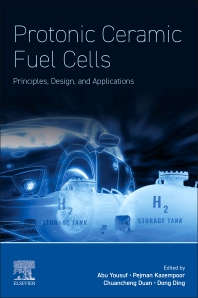Books in Renewable energy and alternative technologies
Books in Renewable energy and alternative technologies
Showcasing solar, wind, hydro, geothermal, and emerging energy solutions, this collection supports researchers, engineers, and policymakers driving the transition to cleaner energy. Featuring innovative technologies, system integration, and policy frameworks, these resources facilitate sustainable energy deployment, addressing climate change and energy security with practical, real-world insights and case studies.

Solar Stills for Sustainable Water Purification
Innovations, Policies, and Applications- 1st Edition
- September 1, 2026
- Zafar Said + 1 more
- English

Protonic Ceramic Fuel Cells
Principles, Design, and Applications- 1st Edition
- September 1, 2026
- Abu Yousuf + 3 more
- English

Metal-ion Capacitors
Fundamentals, Materials, Characterization, and Developments- 1st Edition
- September 1, 2026
- Debasish Sarkar
- English

Wind Turbine Wakes
Physics, Modelling and Mitigation Strategies- 1st Edition
- September 1, 2026
- Xiaolei Yang
- English

Encyclopedia of Renewable Energy Engineering
- 1st Edition
- September 1, 2026
- Frede Blaabjerg
- English

Energy Storage and Hydrogen Integration for Sustainable Solutions
- 1st Edition
- September 1, 2026
- Mousa Marzband + 1 more
- English

Safety and Reliability of Offshore Renewable Energies
- 1st Edition
- September 1, 2026
- Rouzbeh Abbassi + 3 more
- English

Renewable Photocatalysts
Technologies, Applications, Economics, Environmental Analysis, and a Sustainable Future- 1st Edition
- August 1, 2026
- Hui Xu + 2 more
- English

Sustainable Biogas Production
Transforming Waste into Energy and Fertilizers- 1st Edition
- August 1, 2026
- Dawid Skrzypczak + 1 more
- English

Bioenergy Production from Municipal Sewage Sludge
Technological Advancements and Greenhouse Gases Emissions- 1st Edition
- August 1, 2026
- Qilin Wang + 3 more
- English